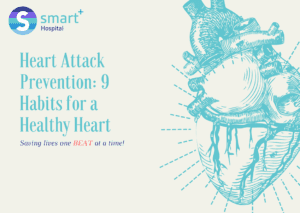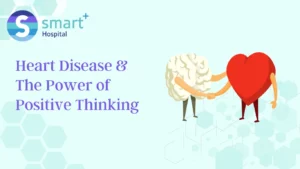If you have type 2 diabetes, you may be at risk of having a silent heart attack without even knowing it. A silent heart attack is a type of heart attack that does not cause typical or apparent symptoms, such as chest pain, shortness of breath, or sweating. It can be detected by an electrocardiogram (ECG) or other tests that measure the heart’s electrical activity.
A silent heart attack can be just as dangerous as a regular heart attack and may increase your risk of dying from heart disease in the future. In this article, we will explain:
- Why people with type 2 diabetes are more likely to have silent heart attacks?
- What are the possible signs and complications of silent heart attacks?
- How to prevent silent heart attacks?
Why Diabetes Causes Silent Heart Attacks?
One of the main reasons why people with diabetes are more prone to silent heart attacks is nerve damage, also known as neuropathy. Neuropathy is a common complication of diabetes that occurs when high blood sugar levels damage the nerves throughout the body. Neuropathy can affect the nerves that lead to the heart, blood vessels, and other organs, impairing their ability to signal pain or discomfort.
This means that you may not feel the usual warning signs during a heart attack, such as chest pain, arm pain, or jaw pain. You may also have other unusual symptoms, such as indigestion, wrist pain, fatigue, or dizziness. Or you may have no symptoms at all. This can make it hard to recognise and seek medical attention for a heart attack.
Another reason why people with type 2 diabetes are more prone to silent heart attacks is that they often have other risk factors for heart disease, such as:
- High blood pressure
- High cholesterol
- Obesity
- Smoking
- Physical inactivity
These risk factors can damage the arteries that supply blood and oxygen to the heart muscle, and cause plaque buildup (atherosclerosis) that narrows or blocks them. A plaque ruptures or breaks off can trigger a blood clot that blocks blood flow to the heart muscle, causing a heart attack.
Signs and Complications of Silent Heart Attacks
Even though silent heart attacks may not cause noticeable symptoms, they can still damage the heart muscle and affect its function. Some possible signs and complications of silent heart attacks include:
- Abnormal ECG results that show changes in the electrical activity of the heart
- Elevated levels of cardiac enzymes (such as troponin) in the blood indicate damage to the heart muscle
- Reduced ejection fraction (EF), which is a measure of how much blood the heart pumps out with each beat
- Heart failure, which is a condition where the heart cannot pump enough blood to meet the body’s needs
- Arrhythmias, which are irregular or abnormal heart rhythms that can affect the heart’s ability to pump blood
- Angina, which is chest pain or discomfort that occurs when the heart does not get enough blood and oxygen
- Cardiac arrest, which is a sudden loss of heart function that can cause death if not treated immediately
How to Prevent Silent Heart Attacks?
The best way to prevent silent heart attacks is to control your blood sugar levels and manage your other risk factors for heart disease. Some precasteps you can take include:
- Take your diabetes medications as prescribed by your doctor
- Monitor your blood sugar levels regularly and keep them within your target range e.g. 130 mg/dL
- Eat healthy diet that is low in saturated fat, trans fat, salt, and added sugar
- Exercise regularly for at least 150 minutes per week
- Quit smoking if you smoke
- Limit your alcohol intake if you drink
- Manage your stress levels
- Get enough sleep
- Have regular check-ups with your doctor and get screened for cardiovascular diseases
If you suspect that you may have had a silent heart attack in the past or are at risk of having one in the future, talk to your doctor about your options. Your doctor may recommend some tests to assess your heart health and prescribe some medications or treatments to prevent further damage or complications.
Remember, a silent heart attack is not harmless. It can have serious consequences for your health and quality of life. By taking care of your diabetes and your heart, you can reduce your risk of having a silent heart attack and improve your chances of living a long and healthy life.




